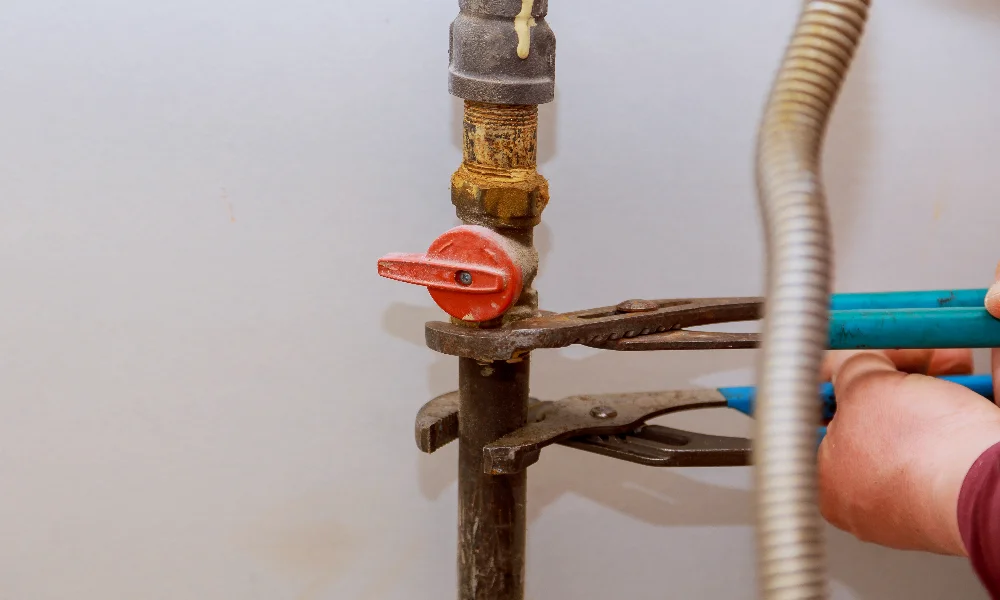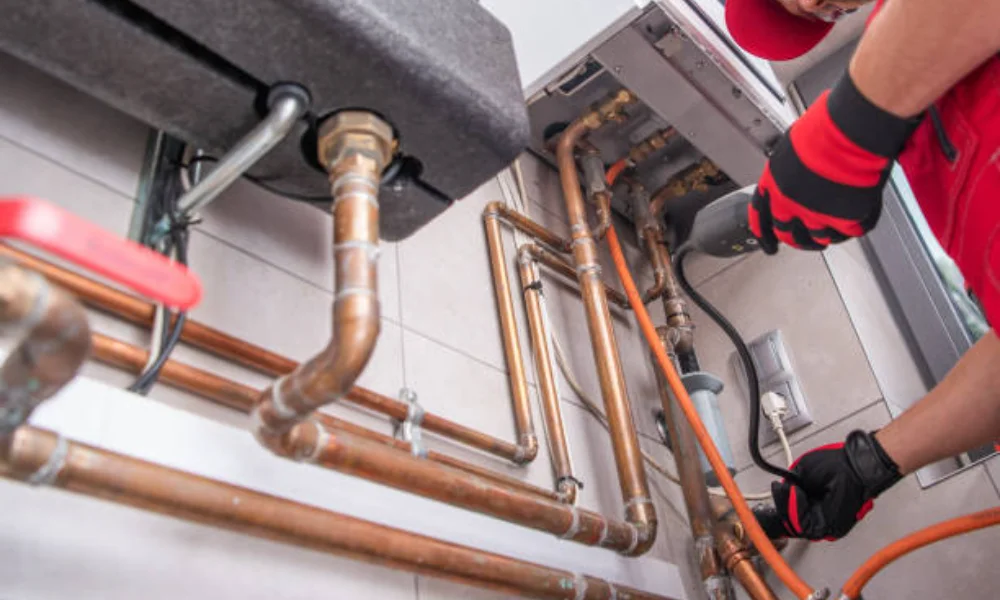
Gas lines serve an important part in keeping our houses warm, functioning, and pleasant. However, as the phrase goes, “Better safe than sorry.” Gas leaks are quiet threats that may cause fires, explosions, and severe health problems. That is why knowing how to test a gas line for a leak is one of the most vital skills for every homeowner. With the appropriate information, you can safeguard your loved ones and keep your house secure.
How to Test a Gas Line for a Leak
Why Gas Leak Testing Is Important
Gas may be invisible, but its influence is significant. If a leak continues undiscovered, it might endanger your health or ruin your property. Testing is the first line of defence. Consider it a safety check that gives you peace of mind.
Safety Concerns for Homeowners
Gas leaks may not always make themselves evident. If you do not notice them in time, the hazards increase. Regular testing allows you to detect concerns before they become catastrophes.
Risk of Fire, Explosion, or Health Hazards
Gas is combustible, thus even a little leak might cause a fire or explosion. In addition, inhaling gas may produce dizziness, nausea, and other unpleasant symptoms.
Signs You May Have a Gas Leak
Hissing Sounds Near Appliances or Pipes
One of the most noticeable indicators is a hissing sound. If you hear this near your gas stove, boiler, or pipes, gas may be leaking.
Rotten Egg Smell (Mercaptan)
The gas itself has no odour. To ensure safety, providers add mercaptan, a chemical that smells like rotten eggs. If you smell it, take action right away.
Dead Plants or Discolored Grass Above Buried Lines
Leaks may occur underground. If grass, bushes, or plants near the gas line suddenly die or turn yellow, a leak might be the cause.
Physical Symptoms (Headache, Nausea, Dizziness)
Exposure to gas might make you feel sick. Symptoms such as headaches, nausea, or dizziness that improve after being outdoors are warning indicators.
How to Test a Gas Line for a Leak
1. Turn Off Gas Appliances and Ensure Safety
Before testing, switch off any gas appliances. Make sure the space is well ventilated. This step helps you avoid mishaps while working.
2. Apply Soap and Water Solution
Combine soap and water in a spray bottle or basin. Apply it to the probable leak location. It’s a simple, safe, and successful approach.
3. Look for Bubbles Forming on the Pipe
If bubbles appear when you spray the solution, it means that gas is escaping. This simple test is frequently sufficient to confirm a leak.
4. Use a Gas Leak Detector for Extra Confirmation
You can get an additional layer of protection from a gas detector. It can immediately detect leaks that are not obvious with soap and water alone.
Why Gas Leak Testing Is Important
Safety Concerns for Homeowners
Knowing how to test a gas line for leaks guarantees that there are no hidden threats. Ignoring little leaks might lead to major issues.
Risk of Fire, Explosion, or Health Hazards
Unchecked leaks endanger your family and property. A little spark might quickly become a calamity. Regular testing helps to avoid this.
Types of Gas Leak Detectors
Handheld Electronic Detectors
These portable gadgets are simple to use. Simply place them near pipelines or appliances, and they will warn you if there is gas present.
Plug-In Detectors for Continuous Monitoring
These detectors remain hooked into your wall sockets. They constantly check gas levels and notify you if anything is wrong.
Smart Detectors with Phone Alerts
Smart detectors take things one step further. They link to your phone and deliver fast notifications even when you are not at home.
How Professionals Fix Gas Line Leaks
It’s not always possible to know how to fix a gas line leak on your own. Here’s where specialists come in.
1. Inspection and Shutoff
To avoid mishaps, professionals will first evaluate your system and turn off the gas supply.
2. Locating the Leak
They employ sophisticated techniques to locate precisely where the leak is occurring.
3. Replacing or Sealing Damaged Sections
Depending on the extent of the damage, they will either repair the defective pipe or install an appropriate seal.
4. Pressure Testing the System
Following repairs, they conduct pressure testing to ensure that your gas line is safe again.

FAQs
How Long Can a Small Gas Leak Go Unnoticed?
Small leaks might lie undetected for days or weeks, particularly if they are underground. Regular testing avoids this.
Can a Very Small Gas Leak Make You Sick?
Yes. Even little leaks might result in symptoms such as headaches, dizziness, and nausea over time.
Can a Gas Leak Cause an Explosion?
Absolutely. Gas is very combustible, and even a little spark near a leak may result in a deadly explosion.
Safe Homes Start with Smart Steps
Gas leaks are dangerous, but not uncontrollable. Learning how to test gas line for leaks puts you in charge of your home’s safety. Every step, from listening for hissing noises to applying soap solution or detectors, helps to keep your loved ones safe. And if you suspect a larger problem, don’t be afraid to seek professional help.
Wally Blanton Plumbing & Sewer specializes in gas line repair and safety inspections in Antioch, Illinois. We know just how to fix a gas line leak in a safe and effective manner. Don’t wait for a little problem to escalate into a calamity; contact us immediately to keep your house secure.
